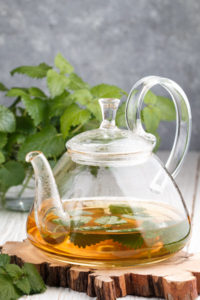Table of Contents
When something happens during your day, regardless of what that stressor is, your body responds the same way every time. Your HPA axis kicks in and sends a cascade of hormones into your system. Dominated by a flood of cortisol from your adrenals. To fight the effects of stress in your body.
This stress response can be caused by fear or anxiety set off by a remark from your spouse, someone cutting you off in traffic, not enough sleep, excess exercise, illness, or the ongoing threat of contracting COVID-19.
When the stress ends, your body is designed to return to normal. But the thing is, in our modern world, and for most of us, the stress often continues. The symptoms stay under the radar and we’re not aware of it.
The symptoms of chronic stress show up as brain fog, anxiety and depression, weight gain around your waist, not feeling rested after a night’s sleep, and catching every cold or flu bug that’s going around.
As a neurohacker working on optimizing cognitive performance, it’s important to realize that chronic stress and cortisol will damage your brain. And work against everything you’re trying to do with nootropics.
Fortunately, you have easy access to an elite-class of nootropics that help your body cope with stress. And avoid the damage it can cause. Bringing your body back into a balanced, healthy, optimized state. They are called “adaptogens”.
Stress causes brain damage
Neuroscientists at the University of California, Berkeley found that chronic stress triggers long-term changes in brain structure and function.[i] Chronic stress changes neural networks.
Cortisol creates a domino effect that hard-wires pathways between the hippocampus and amygdala. (The amygdala (lizard brain) is the area responsible for your fight-or-flight response).
This hard-wiring caused by stress is not the way your brain was designed. But chronic, ongoing stress tricks the brain into rebuilding circuits and hunkering down for the long haul.
This re-wiring appears to be permanent. Unless you intervene with something like an adaptogen.
Chronic stress seems to ‘flip a switch’ in stem cells in the brain. And turns them into a type of cell that prevents connections to the prefrontal cortex. Preventing learning and memory.
And laying down the scaffolding linked to anxiety, depression and PTSD (Post Traumatic Stress Disorder).
What is an adaptogen?
Humans have been using plants for food and medicine for thousands of years. Emperor Shen-Nung, the 2nd of China’s emperors (3500-2600 BC) catalogued over 365 species of medicinal plants. Many of which are still used in traditional Chinese medicine today.[ii]
Of those medicinal plants, a couple stand out as unique in their ability to help humans cope with physical and mental stress. Other cultures and ancient healing systems have since added to this short list. We now call these herbal remedies “adaptogens”.
The word adaptogen is derived from the Latin adaptare (to adjust or adapt). It was first used by Soviet physician and scientist Nikolai Lazarev in 1947. Lazarev was joined by Dr. Israel Brekham, and as a team began the search for botanicals with adaptogenic qualities.
The first plant the team studied was Panax Ginseng which has been in use for millennia. And was written about by Shen-Nung as a remedy over 5000 years ago.[iii]
The definition of “adaptogen” includes “metabolic regulators (of a natural origin) which increase the ability of an organism to adapt to environmental factors and to avoid damage from such factors.”
It turns out that many of these “metabolic regulators” are compounds found in certain plants that help them cope with growing in a stressful environment.
These compounds help plants adapt to extreme temperatures, resist insects that would otherwise do them harm, or cope with toxins drawn into the plant from the soil it’s growing in.
Ancient medical practitioners discovered that a few of these plants, or compounds derived by extraction, transferred their benefits to humans. And help us cope with various kinds of stress too.
How Adaptogens Work
Adding adaptogens to your stack can improve alertness, concentration, focus, learning, memory, mood and reduce brain fog. But the primary purpose of adding an adaptogen to your nootropic stack is to reduce physical and mental stress. And bring balance back to your life.
Each herbal supplement classified as an adaptogen has a different mechanism of action in your brain and body. But overall, adaptogens work by:
- Balancing the production of neurotransmitters
- Boosting brain cell signaling
- Improving cerebral blood flow
- Modulating brain waves
- Protecting from brain cell damage
- Eliminating heavy metals and toxins
- Promoting neuroplasticity
- Upregulating BDNF and nerve growth factor
Herbal adaptogens are known for increasing your resistance to both mental and physical stress. They offer the ability to adapt to stress more easily. No matter the cause. It could be a hectic calendar, extremes in hot or cold, noise, changes in altitude, exposure the toxins in food or the environment, illness, or physical exertion from exercise or work.
The beauty of using any of these nootropics is not only protecting you from stress. But they can also boost cognition, improve your reflexes, provide clearer thinking, and even improve your memory.
Best Adaptogen Supplements
The best adaptogen supplements for nootropic use make up a short list. This elite class of herbs can have a profound effect on cognition and brain health.
Natural adaptogens are easy to find in local vitamin shops and health food stores. And most of the online retailers that sell dietary supplements carry the adaptogens listed below.
Each nootropic below features a live link to a full adaptogen supplement review. The detailed article on each includes the history and why it’s used as a nootropic, how it works in your brain, clinical studies, recommended dosage, possible side effects and the best form to buy.
Ginseng
Ginseng – Instead of reaching for an energy drink, another cup of coffee or an Adderall to give yourself a boost – try Ginseng. One study with 30 healthy young volunteers demonstrated the power of Ginseng. Participants were given 200 mg or 400 mg of Panax Ginseng extract (G115) then asked to perform various tests.
The most noticeable effects were found at the lower 200 mg dose. An hour after supplementing with Ginseng extract both groups had lower blood glucose levels. But the biggest improvement in mental performance and reduction in fatigue during sustained mental activity were with the lower dose group.[iv]
Asian Ginseng (Panax ginseng) has been used for over 5,000 years as an herbal remedy.[v] Panax means “cure-all” in Greek. This potent adaptogen reduces adrenal fatigue, and boosts GABA. Providing an anti-stress effect.
Ginseng also stimulates the formation of new blood vessels in your brain which improves blood circulation. Ginsenosides increase protein synthesis and the activity of neurotransmitters. All of which improves alertness, reduces mental fatigue, boosts memory and overall cognition.
American Ginseng (Panax quinquefolius) is preferred by many neurohackers over Asian Ginseng because it’s not as stimulating. And it’s produced under stricter conditions than any other ginseng. Studies show American Ginseng has a profound effect on enhancing memory after a single dose.[vi] And like Asian Ginseng, is a great choice for relieving anxiety.
Gotu Kola
Gotu Kola – This adaptogen is often called “the student herb” in Bali. Because Gotu Kola increases dendrite and axon growth in brain cells which helps memory.[vii]
Gotu Kola also helps prevent the breakdown of acetylcholine which enhances cognition, learning, memory and mood.[viii] Some neurohackers report it as effective at reducing anxiety and relieving stress as Ashwagandha and Phenibut. As a bonus, Gotu Kola helps protect your brain from toxins and oxidative stress.
This ancient Ayurvedic herbal remedy, Gotu Kola was used just like a first-aid kit. It was used to treat mental fatigue, anxiety, depression, memory loss, insomnia, fever, syphilis, hepatitis, epilepsy, diarrhea and asthma.
Ashwagandha
Ashwagandha – Native to India, Pakistan and Sri Lanka, this potent herb is one of the most powerful in Ayurvedic medicine. And stands shoulder-to-shoulder with some of the most potent prescription drugs used to treat depression and anxiety.
In Sanskrit, Ashwagandha means “smell of horse”. Meaning this herb imparts the strength and vigor of a stallion. It helps relieve anxiety and depression by reducing the stress hormone cortisol. And by enhancing GABA and serotonin receptors in your brain.
Studies show that Ashwagandha helps regenerate axons, dendrites and synapses. Restoring neural networks needed for memory. The extract of this herb inhibits the enzyme acetylcholinesterase.[ix] Which keeps more acetylcholine available for cognition, learning and memory.
After a study at Asha Hospital in Hyderabad, India, researchers concluded that “a high-concentration full-spectrum Ashwagandha root extract safely and effectively improves an individual’s resistance towards stress and thereby improves self-assessed quality of life”.[x]
Lemon Balm
Lemon Balm – As an adaptogen, Lemon Balm is most commonly used for stress relief, and to reduce panic attacks.
The rosmarinic acid in Lemon Balm provides anti-anxiety effects by inhibiting the GABA transaminase enzyme. Which helps maintain adequate levels of GABA in your brain needed for regulating mood.
Rosmarinic acid also provides an anti-depressant effect in your brain by downregulating mitogen-activated protein kinase phosphatase-1 (Mkp-1). And by upregulating brain-derived neurotrophic factor (BDNF), along with boosting dopamine synthesis.[xi]
Another active component in Lemon Balm called eugenol works as a powerful antioxidant. Naturally eliminating free radicals that would normally damage brain cells.
The bottom-line is Lemon Balm helps anxiety, concentration, depression, focus, irritability, learning and memory. Some reviewers say using Lemon Balm works as well as prescription Xanax. Without the side effects.
Ginkgo Biloba
Ginkgo Biloba – In the most ancient medical text we’ve found so far, the Chinese Materia Medica (2800 B.C.) lists Ginkgo Biloba for asthma, swelling of the hands and feet, coughs, vascular disorders, aging and for the brain.[xii]
Modern science tells us how Ginkgo works. It acts as a monoamine oxidase inhibitor (MAOI) which reduces levels of monoamine oxidase (MAO) in your brain. MAO breaks down dopamine. Inhibiting MAO increases dopamine levels which helps reduce anxiety.[xiii]
Ginkgo also helps increase cerebral blood flow which improves oxygen and glucose delivery to fuel brain cells. Improving cognition, learning, memory and recall. And it reduces oxidative stress by eliminating free radicals. Keeping brain cells healthy.
One important thing to note if you decide to try Ginkgo. User reviews and studies have consistently shown that it may take several weeks of supplementing with Ginkgo before you realize any benefit. But once those benefits start to kick in, this adaptogen may become a permanent part of your nootropic stack.
Bacopa Monnieri
Bacopa Monnieri – Bacopa is considered by many to be the best nootropic available today. It’s an adaptogen because it helps prevent the chemical and physical effects of stress. Instead of simply suppressing them like many prescription antidepressants and anti-anxiety drugs.
The ancient Ayurvedic texts first recommended Bacopa to devotees as a way to help memorize long passages of text. The bacosides A and B in Bacopa improve signaling between neurons, and help rebuild damaged brain cells. It’s been shown in studies to boost word recall, attention and memory, improve focus, and lower anxiety and heart rate.[xiv]
Researchers at Banaras Hindu University in India showed Bacopa as effective for anxiety as the benzodiazepine drug lorazepam. One of the side effects of lorazepam is memory loss. Bacopa Monnieri on the other hand, reduced anxiety while boosting cognition.[xv]
If you’re thinking of trying Bacopa but need a little more convincing, I recommend reading the extended review here on Nootropics Expert. Particularly the section called “Bacopa Monnieri benefits”. It digs down into the molecular evidence on how this adaptogen works.
Rhodiola Rosea
Rhodiola Rosea – Rhodiola has an amazing ability to help you overcome fatigue and exhaustion caused by physical and mental stress. Rhodiola is known for improving alertness, energy, memory and mood, is anti-anxiety and anti-depressant, reduces fatigue, and boosts cognition and concentration.
The active components in Rhodiola collectively known as rosavins along with salidroside and tyrosol provide its benefits. It reverses damage to neurons caused by chronic stress. And it promotes key neurotransmitters like serotonin, norepinephrine and beta-endorphins which help reduce stress.
Rhodiola also prevents and repairs damage caused by C-reactive protein and free radicals. It even helps regenerate neurons during periods of stress. In part by boosting the synthesis and re-synthesis of ATP. Your main cellular fuel source created in mitochondria.
Clinical studies and user experience show you get the full benefits of Rhodiola Rosea by supplementing with this adaptogen for 30 – 40 days.
Add Balance to Your Nootropic Stack
Some of the adaptogens reviewed in this post have thousands of years of science supporting their use. Some of the ‘newer’ adaptogens like Lemon Balm have dozens of clinical trials and hundreds of years of practical use proving their efficacy in treating stress.
When used according to dosage recommendations, side effects are few or non-existent with adaptogens. These natural herbs simply bring balance back to your body and brain.
Effectively treating stress often results in the added benefits of better memory and learning, less physical and mental fatigue, elimination of anxiety, and a better mood for a much more pleasant quality of life.
Living in this modern world makes it nearly impossible to bring balance back to our dysfunctional lives without the intervention of nootropics. And particularly an adaptogen or two.
Some of the higher quality, pre-made nootropic stacks like include adaptogens in their formula. For example, Mind Lab Pro® contains effective amounts of the anxiety-reducing adaptogens Bacopa Monnieri and Rhodiola Rosea. So read nootropic supplement labels carefully before making your selection.
You’ll find that selecting the right adaptogens for your nootropic stack will often improve the effectiveness of racetams, choline supplements, and other nootropic compounds.
If you’re dealing with chronic fatigue, low energy levels, poor memory or ongoing stress – do yourself a favor. Add an adaptogen to your daily supplement regimen. And start enjoying life again.









Join The Discussion - 99 comments
Tiara
December 26, 2022
Hi David how are you?
I have chronic derealization disorder for 21 years, and anxiety and depression from it. The only thing that seems to help with feel present and mood is l Theanine. But I think I’m too sensitive to it. I take NOW brand.
I was wondering if you have a suggestion of another thing that I could try to feel more present and for lifting my mood cause the depression is very bad right now. I’m currently taken Zoloft 150mg and Quetiapine 25mg.
What are you thoughts about Rhodiola ?
Thank you very much.
(I watch all your videos)
David Tomen
December 28, 2022
Tiara, try a L-Theanine supplement that uses the patented Suntheanine like this one: https://geni.us/Cx52ax (Amazon).
You can try Rhodiola Rosea but it’s a completely different supplement compared to L-Theanine.
Mitch
November 8, 2022
What about people that are extremely sensitive to caffeine. It also causes the blood pressure to elevate. People that create their own energy but battle depression and anxiety since terrible childhoods. Paxil works well but who wants to be addicted and go through detox to give the liver a rest? Also these people wake up all night long and nothing works such as Aswaghanda, Gabba, Amino acids, teas, lavender, melatonin, valerian root. Trazadone works but who wants to take prescription meds? Are there other oddballs out there like me?
David Tomen
November 9, 2022
Mitch, you are not being clear on what you are trying to fix. Is it depression? Anxiety?
Jerry Cahill
October 4, 2022
Excellent information. This seems to be related to the brain. I cannot pass a Raglund test which indicates my adrenals may be fatigued. The response that seems related to the brain is that at times I just snap out and this seems to be a symptom of adrenals. Will these stacks help heal the adrenals?
David Tomen
October 5, 2022
Jerry, the best thing I have found for adrenal fatigue and use 3 – 4-times day is this: https://geni.us/Xzo6 (Amazon)
Alana
June 28, 2022
David, thanks for sharing your valuable insights. I wanted to know what you think about stacking mucuna and kratom. I’ve read that the mucuna potentiates the kratom, but that those who are dopamine sensitive don’t enjoy it. Maybe this was even somewhere on your website.
David Tomen
July 1, 2022
Alana, it may potentiate at least part of kratom’s effects because of its ability to boost norepinephrine. Which is produced from dopamine.
Alana
August 26, 2022
Thanks, David!
RawLu
June 18, 2022
David Thank You for all your work,
For whatever its worth? Ashwagandha is the only thing to ever do anything what-so-ever including prescriptions, vitamins, other herbs etc. in 40+ years of Anxiety disorders. Period.
I was so shocked by the results that I stopped taking it until my symptom that had went away returned(morning anxiety?), it did. I started taking it again & it again went away & has all but stayed away. yup.
is it a cure? NO. Does it really help? Absolutely.
David? I always feel Drained? Even b4 the Ashwagandha I’ve always lacked energy & I even see Ashwagandha being recommended to help you sleep!?! 😮 I’m always sleepy enough!
is their any one thing(i hate taking many pills) you could recommend to go along with Ashwagandha to help with Energy etc. without making more anxiety?
TY. Ron.
David Tomen
June 19, 2022
https://bit.ly/3ifR1XJ full dose twice per day.
RawLu
June 19, 2022
TYVM for your reply, David 🙂
Mick
October 26, 2021
Hi David,
I would like to ask you a question about adaptogens for social anxiety and the other benefits that they produce. If I have a choice of taking 3 adaptogens, is it better to take 3 different adaptogens e.g., 1 capsule of ginseng, 1 capsule of ashwagandha and 1 capsule of holy basil or will the effect be similar if I would take e.g., 3 holy basil capsules in one go? I’m just wondering because they all adaptogens, but they probably work in the different way.
David Tomen
October 27, 2021
Mick, each adaptogen works differently. I suggest reading each individual supplement review by clicking through to the full review. And get familiar with how each one works. Then decide which one you want to try first.
If your social anxiety is caused by a neurotransmitter dysfunction then you need to figure out which one is causing you problems. See this article for more on how to test this: https://nootropicsexpert.com/best-nootropics-for-anxiety/
Mick
October 28, 2021
Thank you for the tip David
Robert
October 26, 2021
Hi brillant Article whats your thoughts on fasoracetam? for helping get off benzodiazepines and L- theanine as you mentioned in another article taking Gaba does not penetrate the blood brain barrier
How can you take fat soluble powder nootropics besides putting them in capsules ? milk?
lastly how do you take a nootropic to increase dopamine and serotonin as they seem to work inversely.
Thank you.
David Tomen
October 26, 2021
Robert, I have not done any research on Fasoracetam because there are no human trials and very few animal trials to support its use. And GABA does cross the blood-brain barrier just not very well. Not unless you use PharmaGABA.
I ensure my fat-soluble nootropics get used buy taking my stack with a tablespoon of unrefined coconut oil which activates the pancreatic enzymes needed for fat metabolism.
And if you get the Nootropics Expert newsletter there is an email going out in the next 10 minutes about dopamine and serotonin.
Tom
October 10, 2021
Yet another brilliant article.
The following research paper outlines the benefits of lion’s mane, but states that the benefits disappeared when supplementation stopped
https://pubmed.ncbi.nlm.nih.gov/18844328/
What are your thoughts on this? Is this consistent with other adaptegens? Are they only beneficial whilst taking? If stress permanently damages the brain, how do we reverse (permanently) this damage?
I would have thought positive changes could be maintained? For example if ashwaganda clinically works on reducing cortisol levels after supplementation say for months ones cortisol levels would remain low once coming off (subject to livestyle factors which could increase again)
David Tomen
October 11, 2021
Tom, it depends on the adaptogen or herb whether it will create lasting change.
Lion’s Mane increases Nerve Growth Factor which increases neurogenesis and neuroplasticity which is why the subjects in that study experienced an increase in cognitive scores. But once you stop taking it then Nerve Growth Factor will soon go back to where it was before. Which is what happened to these people 4 weeks after they stopped using Lion’s Mane.
A similar thing would happen with Ashwagandha which reduces cortisol while you are using it. And it helps repair dendrites, axons and synapses while you are using it. But once you stop using it you are no longer doing “maintenance” and things will slide back again.
Tom
October 11, 2021
Thanks David, can you please advise which adaptation/herb might create lasting change?
David Tomen
October 12, 2021
Tom, any of the adaptogens will create lasting change. But consider how your brain works. It is a very dynamic environment with new networks being built, toxins being taken out, energy being produced, etc.
So, the “lasting change” you create in one cell environment does not account for everything happening around it.
The human brain is an amazing thing. But unless we maintain it it’ll age and eventually wear out like the rest of our body. You need to constantly provide it with the tools it needs if you want to support it. It’s like me asking you how many times during the month you eat food. Wouldn’t the meal you had last Saturday take care of everything forever and you’ll never need to eat again? Of course not. That just sounds silly.
It’s the same principle when using any nootropic including adaptogens.
Tom
October 13, 2021
Brilliant! Thanks for sharing all your extremely valuable knowledge.
Wes Crafton
February 20, 2022
Hi David, would you mind helping me with a dilemma. I was taking 600mg of KSM-66 Ashwaghanda daily for 2 years without cycling from 2020 to 2022. Basically using it to help treat insomnia caused by high cortisol at night, stress and anxiety during the pandemic. I was never educated that this adaptogen should be cycled, and well, it stopped working for me completely. I have stopped using is for 7 days now and I am having horrible withdrawal and rebound high cortisol with horrible insomnia. After research, Ashwaghanda affects GABA, and the withdrawals I am experiencing sound similar to benzo withdrawal. What do you recommend I do? Should I simply switch to other adaptogens like Rhodolia, Holy Basil, or L theanine. I will never take another supplement again without cycling. This is horrible! Thank you for guidance!
David Tomen
February 21, 2022
Wes, most do not suffer from withdrawal symptoms when abruptly quitting Ashwagandha. And the only place you can find this info in on Longecity.org from serious biohackers.
Ashwagandha is one of the very few supplements where you can use it or you cannot use it. I cannot because I am hypothyroid because it messes with my thyroid hormones.
I suggest in your case you keep on supplementing with Ashwagandha and wean yourself off of it. Cycling would not have helped you avoid this issue. It would just take you longer before 1. it stopped working for you and 2. you experienced withdrawal from stopping it abruptly.
And the withdrawal issue you experienced is not the same for everyone else who would suffer the same thing. It depends on your system which is unique compared to someone else.
Before I can suggest another adaptogen, what exactly are you using it for?